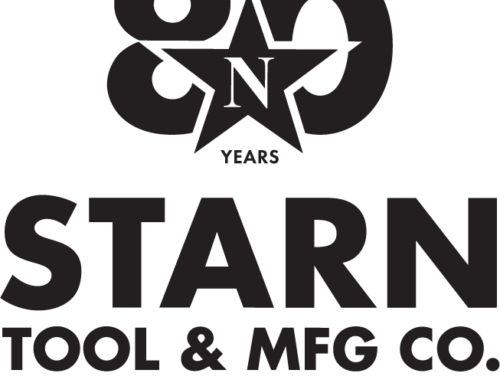
When Ben Rockwell and Dakota Price recently signed their apprenticeship contracts at Starn Tool and Manufacturing Co., they were beginning what could be decades-long careers in a healthy and rewarding industry.
They were also participating in something of a renaissance — the rebirth of an apprenticeship program for the tooling and machining industry in the northwestern region of the state.
Apprenticeship programs, once the lifeblood of tool and die shops in the area, largely fell out of use about two decades ago, according to Tami Adams, executive director of the northwestern Pennsylvania chapter of the National Tooling & Machining Association, a trade organization that promotes the industry.
“Now the trend has shifted,” Adams said shortly after watching Rockwell and Price become the latest examples of that trend. “Employers see the value because people are retiring — there aren’t enough people coming in (to the industry) — so they’re looking for ways to bring people off the street and bring their skill set up quickly, so the apprenticeship is relevant again.”
Technical schools and training programs aren’t producing “enough people to fill the void,” Adams said.
Anticipating such a need, Adams and the northwestern Pennsylvania NTMA chapter sought state approval to launch an apprenticeship program in 2016 and began enrolling participants the following year. Two have already earned their journeyman’s status and another 21 are actively enrolled.
The resurgence of manufacturing apprenticeship programs is a bit of a “back to the future” moment, but the new program offers flexibility that wasn’t available with traditional programs. Instead of the 8,000 hours of on-the-job training accompanied by ongoing classroom instruction, the new program offers competency-based certification with online classes.
“It’s possible to get it done more quickly,” Adams said. When apprentices are ready, they can take credentials exams with both hands-on and written components.
The program proved worthwhile for R.J. Boozer, a journeyman at Coinco Inc. who recently completed his apprenticeship.
“It was definitely a good experience,” said Boozer, who completed the program in fewer than four years.
Robert Boozer, R.J.’s father and president of the Cochranton-based company that his grandfather helped to found 60 years ago, completed the company’s traditional apprenticeship program when such programs were still common and appreciated the flexibility that online courses offered his son.
He appreciated the new source of qualified labor the program afforded his company even more. Having lost its own apprenticeship program, Coinco “definitely” needed something like the NTMA’s program.
“People get old, unfortunately. You need to be able to renew your workforce,” Robert said. “We wanted to have new toolmakers — without having an apprenticeship program, how are you supposed to get toolmakers?”
Based on what he has seen from his son, Boozer said he was impressed by the program. Not only does it allow individual tool shops to avoid the burdensome paperwork required to win approval from the state, it produces skilled journeymen.
“These guys, when they get done with the apprenticeship, they can do everything,” he said. “The way we run it here at Coinco, when the guys graduate, there’s not a machine out on my shop floor that they can’t run.”
Similar results have been seen at Starn Tool & Manufacturing, according to Vice President Greg Wasko. Including new apprentices Rockwell and Price, the firm has hired 18 people who are younger than 25 years old in the past four years, Wasko said, and has been impressed by both the younger generation and the organizations training them — organizations such as NTMA, the Crawford County K-12 Education Alliance and the many teachers and schools that are helping to spread the word about career opportunities in manufacturing.
“You can make a very, very good living in the trades,” Wasko said. Rather than going into debt for college, young people who enter apprenticeship programs are “earning while they’re learning,” he said.
Stereotypes may depict young people entering the workforce as glued to their phones and lacking in people skills, but Wasko said he has been impressed by those he has seen.
“This generation of kids are hard workers,” he said. “This (apprenticeship program) has really been a game changer — and just in time.
“Manufacturing is in a really good place right now.”
*Article published by the Meadville Tribune





